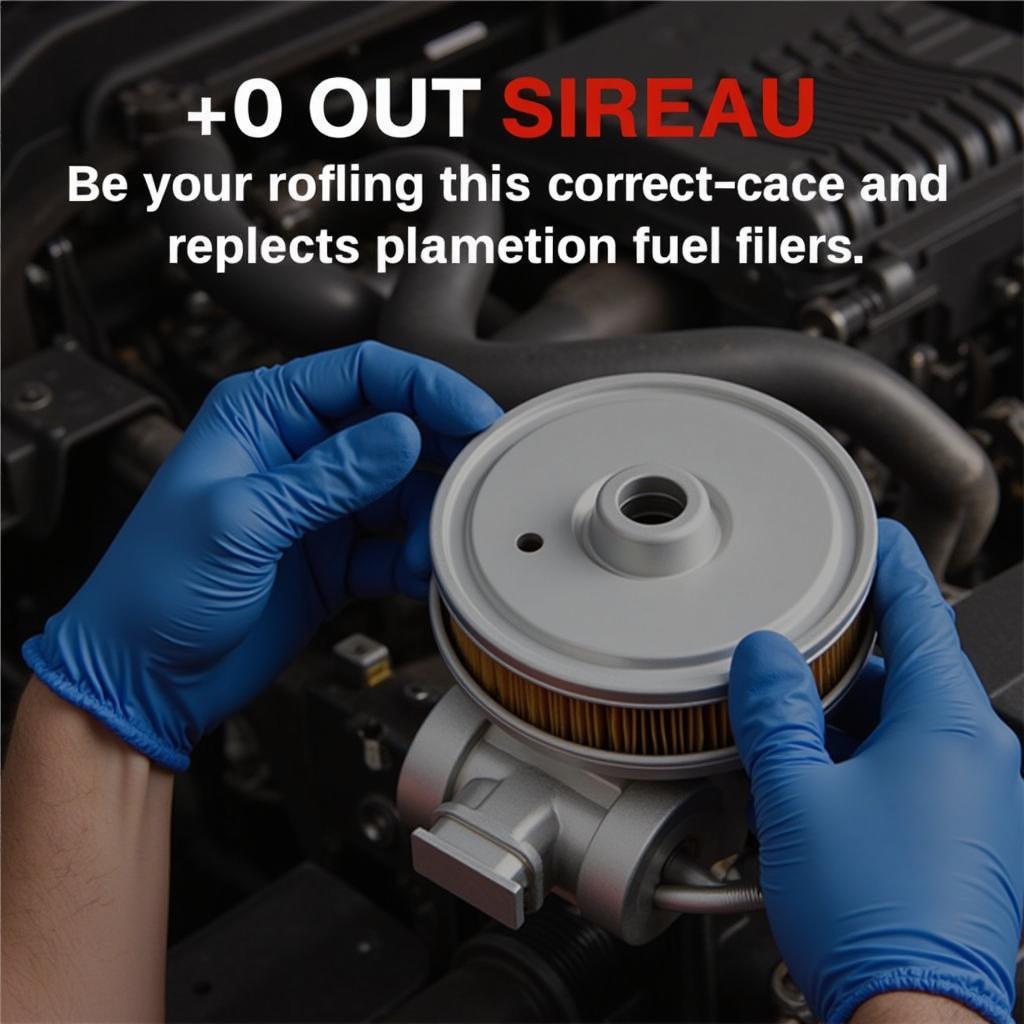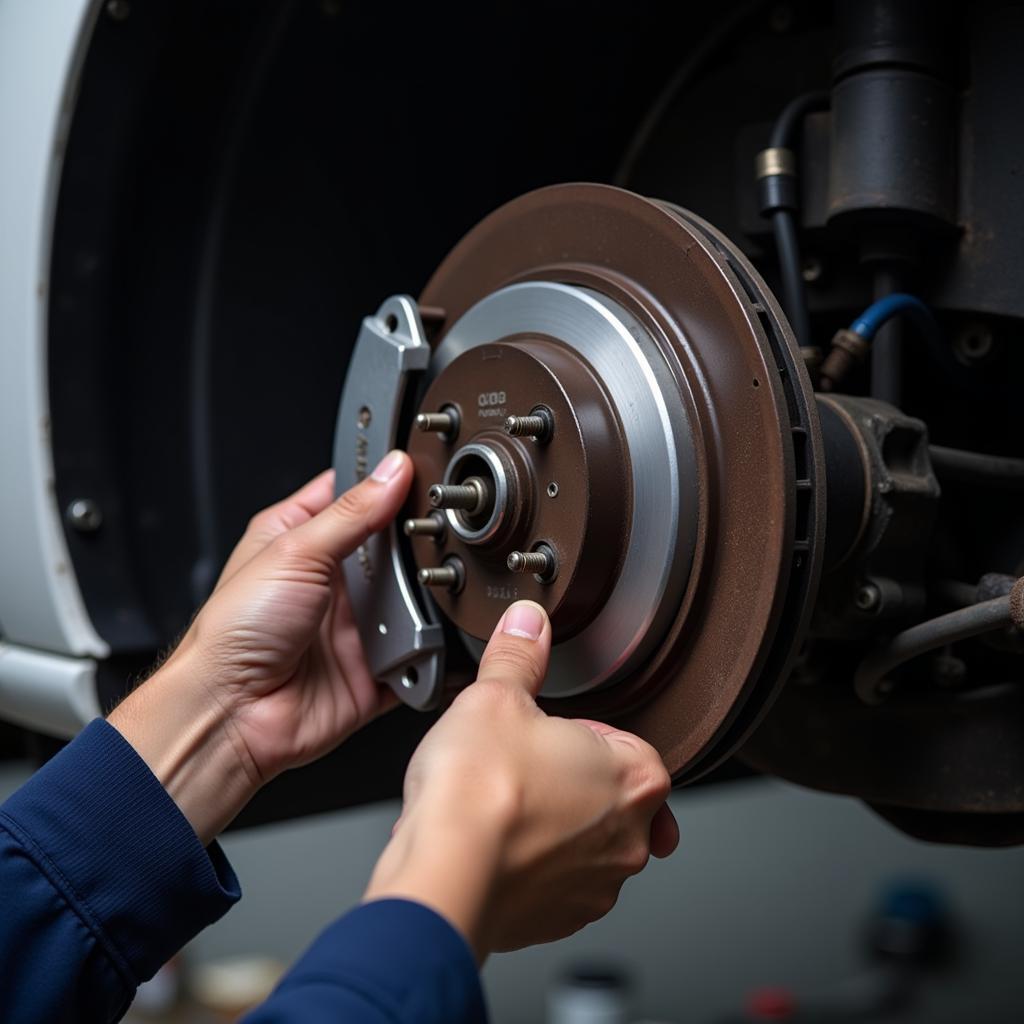What Parts Do I Need to Service My Diesel Car?
Maintaining your diesel car doesn’t have to be a mystery. Understanding which parts need regular servicing is key to keeping your engine running smoothly and avoiding costly repairs down the road. Whether you’re a seasoned diesel owner or a curious newcomer, this guide will walk you through the essential components involved in a diesel car service.
Essential Parts for Diesel Car Servicing
While your diesel engine shares some similarities with its gasoline counterpart, it operates under higher pressures and temperatures, demanding specialized attention to specific parts. Let’s dive into the components that require regular checks and replacements during a service:
1. Fuel System
Diesel fuel systems are more intricate than gasoline ones, featuring components like:
- Fuel Filter: This filter traps contaminants like dirt, water, and rust, preventing them from damaging sensitive injectors and other fuel system parts.
- Fuel Injectors: Responsible for spraying fuel directly into the combustion chamber, these need to be in top condition to ensure efficient fuel burn and optimal performance.
- Fuel Lines and Hoses: These transport fuel under high pressure, so any leaks or blockages need immediate attention.
 Diesel Fuel Filter Replacement
Diesel Fuel Filter Replacement
2. Air Intake System
Clean air is crucial for proper combustion. Here are the key parts:
- Air Filter: Prevents dust, debris, and insects from entering the engine and potentially causing damage. Replacing it regularly ensures optimal airflow.
- Turbocharger (If equipped): This component forces more air into the engine, boosting power. It requires regular inspection for wear and tear, especially on high-mileage vehicles.
3. Lubrication System
Keeping your diesel engine lubricated is vital:
- Oil and Oil Filter: Diesel engines generate more soot than gasoline engines, making regular oil and filter changes even more critical. Fresh oil and a clean filter ensure proper lubrication and prevent engine wear.
4. Cooling System
Diesel engines run hot, making a well-maintained cooling system essential:
- Coolant: Prevents overheating and protects the engine from corrosion. Regular checks and top-ups are necessary to maintain the correct coolant concentration.
- Radiator and Hoses: These components dissipate heat from the coolant. Any leaks or blockages can lead to overheating and engine damage.
5. Exhaust System
Diesel exhaust systems have specific components that require attention:
- Diesel Particulate Filter (DPF): This filter traps harmful soot particles from the exhaust gases. Regular servicing ensures it functions correctly and reduces emissions.
- Exhaust Gas Recirculation (EGR) Valve: This valve helps reduce NOx emissions. It can become clogged with soot and may need cleaning or replacement.
Don’t Forget the Basics
While focusing on diesel-specific parts is important, never neglect the routine maintenance that applies to all vehicles:
- Brakes: Regular inspections and timely replacements of brake pads, rotors, and fluids are essential for safety.
- Tires: Maintaining proper tire pressure, regular rotations, and timely replacements ensure optimal handling and fuel efficiency.
- Belts and Hoses: Inspecting and replacing worn belts and hoses prevent unexpected breakdowns.
What Should a Standard Diesel Car Service Include?
A standard service for a diesel car goes beyond the basics. Check out our article on What Should a Standard Car Service Include? to get a comprehensive understanding of what to expect.
How Much Does a Full Service Cost on a Car?
The cost of servicing your diesel car can vary depending on your location, the make and model of your vehicle, and the specific services required. To learn more about service costs, take a look at our article on How Much Does a Full Service Cost on a Car?
Why Servicing Your Diesel Car Matters
Regular servicing might seem like an added expense, but it’s an investment that pays off in numerous ways:
Increased Engine Lifespan: Well-maintained components run smoother and last longer, saving you from costly engine repairs.
Improved Fuel Efficiency: A clean air filter, properly functioning injectors, and a well-tuned engine all contribute to better fuel economy.
Reduced Emissions: Regular servicing, especially of emissions-related components like the DPF and EGR, helps keep your car environmentally friendly.
Enhanced Safety: Servicing essential safety components like brakes and tires ensures your vehicle is safe to drive.
Frequently Asked Questions
Q: How often should I service my diesel car?
A: Refer to your owner’s manual for specific service intervals. As a general rule, most diesel cars benefit from servicing every 6,000 miles or 12 months, whichever comes first.
Q: Can I service my diesel car myself?
A: While some maintenance tasks can be done at home, it’s generally recommended to have your diesel car serviced by a qualified mechanic, especially for more complex procedures.
Q: What are the signs my diesel car needs servicing?
A: Common signs include unusual noises from the engine, difficulty starting, excessive smoke from the exhaust, decreased fuel efficiency, and warning lights on the dashboard.
Need More Information on Car Services?
Understanding the specific needs of your diesel engine is essential for its longevity and performance. By staying on top of regular servicing and addressing any issues promptly, you can ensure your diesel car serves you well for years to come. Need assistance or have questions? Don’t hesitate to contact us via WhatsApp: +1(641)206-8880 or email us at [email protected]. Our dedicated customer support team is available 24/7 to help you with any car service inquiries.

